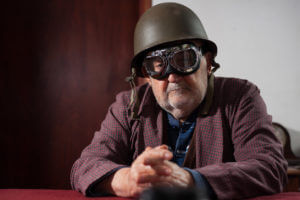
The sacrifices of military personnel often extend beyond the battlefield, and for many veterans, the challenges persist long after their service.
For a unique group known as atomic veterans, the risks they faced during service are unlike any other. But what is an atomic veteran, and how government recognize atomic veterans?
Let us explore who they are, the struggles they face, and the support systems available to them.
Who Are Atomic Veterans
Atomic veterans are military service members who were exposed to radiation during nuclear weapon testing or cleanup operations from 1942 to 1962. The Department of Defense conducted nuclear weapons tests during this period, and these individuals were often present at test sites or involved in cleanup efforts after detonations.
For many atomic veterans, the exposure to radiation was not a choice; it was simply part of their duty. Unfortunately, a lack of protection and awareness at the time has led to long-term health effects, which we will explore further.
Why Understanding Atomic Veterans’ Experiences Is Important
Understanding what an atomic veteran is goes beyond defining the term. Many of these veterans have suffered from radiation-related illnesses, such as cancers and other chronic health conditions.
Advocacy groups continue to fight for recognition, healthcare, and compensation for these brave individuals and their families. Their service is a crucial part of history that cannot be ignored given the sacrifices they made.
Health Risks Faced by Atomic Veterans
Exposure to radiation has been linked to numerous illnesses and medical conditions. Among the health risks many atomic veterans face are:
- Cancers: This includes leukemia, thyroid cancer, and various other forms of cancer linked to radiation exposure.
- Respiratory Conditions: Many atomic veterans suffer from chronic respiratory issues, including chronic obstructive pulmonary disease (COPD).
- Cardiovascular Disease: Exposure to radiation has been shown to increase the risk of heart disease over time.
- Reproductive Health Issues: Radiation exposure has been associated with genetic mutations and reproductive challenges in some veterans.
These conditions often require extensive medical treatment, and many veterans face challenges in accessing healthcare or gaining acknowledgment of their exposure’s impact.
How the Government Recognizes Atomic Veterans
The United States government has acknowledged the risks and sacrifices of atomic veterans. The VA provides certain benefits specifically for veterans exposed to radiation.
Here is an overview of some key measures addressing radiation-related health impacts:
Radiation Exposure Compensation Act (RECA)
The Radiation Exposure Compensation Act (RECA) was established to provide financial relief to individuals who suffered adverse health effects due to radiation exposure. It acknowledges the sacrifices made by those impacted by nuclear testing and uranium-related work.
Who Is Eligible for Compensation
RECA offers compensation to the following groups:
- Atomic Veterans: Military personnel who participated in nuclear weapons testing programs.
- Uranium Workers: Individuals involved in uranium mining, milling, or transporting during specific time periods.
- Downwind Communities: Residents of areas affected by fallout from nuclear testing, often referred to as “downwinders.”
What Health Issues Are Covered
RECA provides financial compensation to individuals diagnosed with certain cancers and other serious diseases linked to radiation exposure. Examples include lung cancer, leukemia, and pulmonary fibrosis, among others.
What Compensation Is Available
Eligible individuals can receive lump-sum payments to help address both the health and financial challenges caused by their exposure. These payments recognize the significant risks and hardships faced by those affected.
Why Is RECA Important
RECA represents a commitment to acknowledging and compensating those who were put at risk during an era of nuclear testing and uranium production. It serves as a critical step in providing justice and support for these individuals and their families.
VA Healthcare Benefits
Atomic veterans who develop radiation-associated illnesses may qualify for specialized healthcare services through the Department of Veterans Affairs (VA). Presumptive conditions linked to radiation exposure are often easier to file claims for, making healthcare access slightly more streamlined.
Steps to Take If You Are an Atomic Veteran
If you believe you are an atomic veteran or are a family member of one, here is what you can do:
- Gather Evidence: Obtain any military records, medical records, and proof of service in areas exposed to radiation.
- File a Claim: Contact the VA to file for healthcare benefits or compensation under RECA.
- Consult Advocacy Groups: Use resources like Downwinders® to guide you through the process of obtaining benefits and recognition.
- Seek Medical Help: If you are experiencing health complications, contact a healthcare provider familiar with radiation exposure-associated illnesses.
- Stay Educated: Keep up with changing laws and policies that may affect your rights as an atomic veteran or family member.
These steps ensure that you can access the support and recognition owed to you for your service.
Compensation for Atomic Veterans in Arizona, Nevada, & Utah
Atomic veterans carry the weight of service that many people may not fully understand. Their sacrifices were not confined to traditional battlefields, yet their contributions remain invaluable. Recognizing their efforts and supporting them and their families is a moral obligation.
If you or someone you know is affected, Downwinders® is here to help. We can check the eligibility for compensation and assist with filing the claim for compensation for atomic veterans. For over 25 years, we have been assisting individuals in obtaining compensation from the Federal Government for cancer linked to radiation exposure. With a success rate of over 95%, our greatest accomplishment is the satisfaction of our clients.
Fill out our registration form to learn more about how our providers at Downwinders® can assist you. We look forward to serving you!
